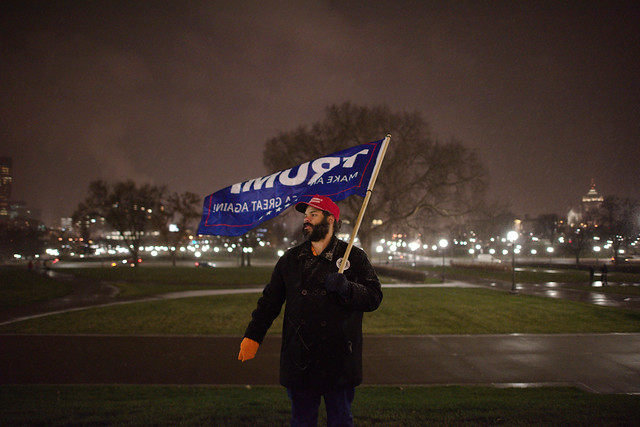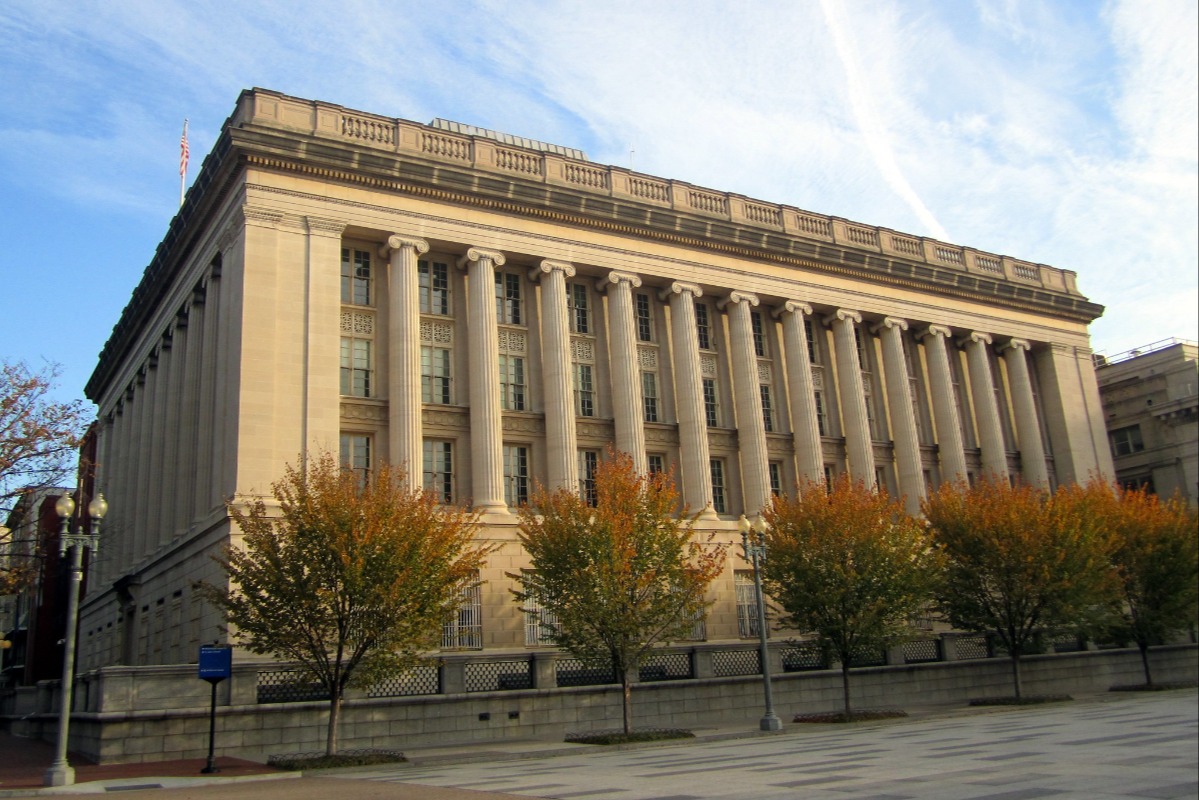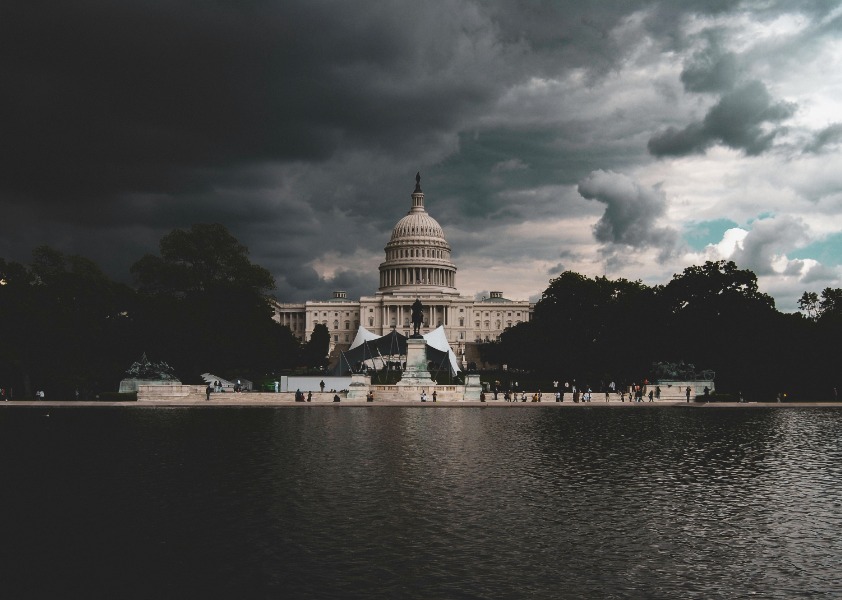The Mueller Report Is a Challenge for Democracy to Solve
It would be hard to imagine a scenario that casts harsher light on the limits of American governance than the aftermath of Special Counsel Robert Mueller’s report—or one that demonstrates how lucky the country is that he chose to make the resulting mess a problem for democracy to solve.

Published by The Lawfare Institute
in Cooperation With

It would be hard to imagine a scenario that casts harsher light on the limits of American governance than the aftermath of Special Counsel Robert Mueller’s report—or one that demonstrates how lucky the country is that he chose to make the resulting mess a problem for democracy to solve.
Mature democracies must balance two contending imperatives. One is to permit regular and serious monitoring of government, especially the executive with its ever-expanding authorities. The other is to keep that monitoring from becoming just another mode of political opposition. This is especially fraught at a moment across the world in which political elites—inside and outside of government—are repeatedly scandalized by choices the people seem to be making at the ballot boxes. What if we creatively interpret Mueller’s handiwork as responding to precisely this dilemma?
In recent decades, Congress has mostly failed to create a durable monitoring regime. The 9/11 Commission—created by Congress by statute and with presidential approval to assess the failures that led to so much exposure to terrorist attack—is a rare counterexample to dithering, in part because it had bipartisan and cross-branch support. But since Watergate, Congress’s other attempts to learn the truth of various unsavory episodes itself have been spotty and uneven, especially when politics are polarized and truth is in the eye of the beholder. And so the country has regularly turned to special counsels, operating under different models of authority, to shine a light where the public needs illumination and when journalism is not enough.
The trouble is that special counsels, not least when they take seriously their charge of smoking out crimes, are not well situated to assess broader patterns of governance. And if they are partisan and reckless, like Ken Starr in his endless and wayward hunt for Bill Clinton’s criminality, they can suck up years of the country’s time (and spend a lot of its money) while bringing democratic self-governance to a screeching halt. Worst of all is the risk that the need to investigate criminal activity, sometimes at the highest levels, will become a pretext for opponents of a democratically elected president to thwart the people’s will. Audiences and commentators pining for two years for an easy out to Donald Trump’s presidency through a Mueller ex machina—even if many came to understand long ago that his report would never provide it—demonstrate that this risk is hardly a minor one.
In this situation, Mueller’s genius was to recognize, after he thoroughly investigated the matter, that sticking closely to what he could criminally charge would primarily expose not the president, but the country’s failure to devise better institutions for such situations.
True, the bumbling charlatan of a president received Russian help throughout the campaign and his associates sidled up to Russian contacts, even if they were not competent to organize a serious conspiracy. The fact remains, of course, that bots hardly caused 60 million Americans to vote for Trump. It is also debatable how much they helped assemble the necessary voters in swing states, who need better parties and more plausible programs if they are not going to repeat their feckless behavior. Nor do Mueller’s revelations alter the reality that, in post-truth times, the Russia hack of the Democratic National Committee—though illegal in origins—revealed disturbing facts.
The already much-debated obstruction section of Mueller’s report is brilliantly constructed to allow various interpretations of what precisely the prosecutor thought when it comes to the president’s malfeasance. Mueller leaves it open to Congress to decide whether to impeach the president for obstruction of justice (or more if it can, especially since no federal official in American history has ever been impeached for obstruction alone). And, whatever his intentions, Mueller also allowed for Attorney General William Barr to conclude that one reason for Trump’s erratic and excessive attempts to put a stop to the investigation after it launched was that it was indeed shot through with the appearance and reality of partisans cheering it on and undermining the people’s choice—what Barr called the “sincere belief that the investigation was … propelled by his political opponents.” Neither Barr’s letter, nor the report itself, appears to have changed many people’s minds. And this suggests that Mueller was wise to conclude that the facts before him could not end polarization but, instead, would only provide fodder for both sides.
Mueller probably flinched at outright identifying illegality on the president’s part or recommending impeachment, since the very job he was sent to do brought him to the brink of a fearful step in a democracy, even for a hard-bitten prosecutor. But perhaps he also saw opportunity in the very fact that his report was going to be sucked into a partisan maelstrom. If you cannot acknowledge that it is enormously difficult for governance both to allow investigating elected authorities and to keep investigations from becoming politics by other means, then you are a partisan on one side or the other, uninterested in balancing these contending needs and finding better institutions for the future. Mueller’s approach was to leave the country to work it out, or live with the sad result.
Democrats in Congress could investigate further—or even just impeach Trump based on what Mueller revealed. But it is doubtful any Republicans will join either cause, for better or worse. More important, if congressional sequels provide continuing distraction from the crying need in both parties to reorient themselves, it would be a tragedy. Mueller’s report can be read as an impeachment referral, but it is as much or more an act of democracy promotion, especially since impeachment is unlikely to achieve more than entrenchment of enmity and distraction from policy.
The power to arraign the president reflects the genuine risk of bad executive behavior. But treating the tools of constitutional governance—on however high-minded a principle—as an attack on political enemies as a pretext for avoiding hard looks at the policies that divide Americans is equally risky. So many already voted for Trump in full knowledge of his actions and character that it is unlikely that further emphasis on his corruption is a viable electoral strategy. Only finding out what a majority of voters really cares about is. This isn’t to say that there are no imaginable circumstances in which the best path would be to impeach or even indict the president. But Mueller appears to have concluded that the future of the country does not depend so much on doing so this time as on letting democracy do its work when it comes to Trump, and doing better in the future with squaring the circle of accountability and partisanship.
We can count ourselves fortunate that Mueller left us where we always ought to have known we are. Americans have a democracy, not only if we can keep it safe from threats but also if we want to practice it by engaging with our fellow citizens. We also have a governance problem when it comes to those who win power along the way, if we ever want to solve it.





